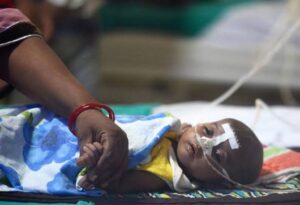
By Abubakar Idris
Despite the widespread outcry over the rising cases of rape in Nigeria, there seems to be no end to the nemesis. There is no day in the country without a reported case of sexual violence especially rape in the media.
One contestable reason for the apparent rise of sexual violence in Nigeria could be that sexual violence victims are becoming more encouraged to report such crimes.
The recent sexual violation and murder of a 22-year University of Benin undergraduate have fanned the embers of the growing awareness and condemnation of sexual violence in the Nigerian society. Since the incident, there have been many other reported cases of violation of women and girls, and even more worrisome is the sexual violation of little girls in the country.
While lunching the Sex Offenders Register as part of the government’s strategy to deal with the issue of rape in the country in December 2019, Mrs Pauline Tallen, Nigeria’s Minister for Women Affairs and Social Development claimed that about two million Nigerians (mainly women and girls) are raped every year.
This figure although not proven, shows that there is a systemic failure in handling this spiralling crime. For instance, a poll conducted by NOIPOLLS in July 2019, revealed that most Nigerians (85%) believe that there is a high prevalence of rape in Nigeria. This is a worrying situation!
According to the report, “about 3 in 10 Nigerians (26 per cent) disclosed that they know someone who has been raped in the past and the rape victims were particularly minors and young adults aged between 1–15 years (72 per cent) and 16–25 years (24 per cent) respectively. This statistic implies that one in every three girls would have experienced at least one form of sexual abuse by the time they reach 25 years”. While we bemoan over women and girls whose violations occur within the purview of law and order, one wonders the magnitude of rape and other forms of sexual abuses which occur in our various conflict zones. Here, women and girls are easily captured and turned into sex slaves and violated at will. For example, on May 7, 2013, insurgents seized 4 women and 8 children from a police barrack in Bama in Borno state.
Besides, owing to inadequate access to basic needs, traditional protection structures, or security fears at internally displaced persons’ camps, some women and girls have reportedly become vulnerable to sexual exploitation in the form of rape and survival sex. In late July 2016, Human Rights Watch documented sexual abuse, including rape and exploitation of 43 women and girls living in seven internally displaced persons (IDPs) camps in Maiduguri, Borno State (Human Rights Watch, 2016).
Similarly, a Rapid Protection Assessment Report published in May 2016 by the Borno State Protection Sector working group comprising national and international aid providers identified sexual exploitation, rape and other sexual abuses as a major concern in 14 camps out of 26 sites hosting IDPs in Borno State.
With current campaigns against rape and other forms of sexual abuse in the country, the state needs to rise to the occasion and deal with it.
Apart from the creation of Sex offenders Registers, which even though commendable but is technically deficient without a national database containing information of every citizen and a national criminal record system.
Secondly, the handling of reported cases by the police in some situations have discouraged many victims of rape from coming forward.
There is a need for such cases if charged to court to be given a quick hearing, thereby restoring confidence in the mind of victims. If rapists are caught, tried and jailed in time, it can serve as a form of deterrence to future offenders.
As disclosed by NOIPOLL, “there are perceptions that rape cases have been under-reported especially to the Police, findings showed that slightly more than half (53 per cent) of the respondents mentioned that rape incidents were reported to the Police. Out of this proportion, 67 per cent acknowledged that the offenders were arrested, while 33 per cent claimed that the offenders were not arrested. This implies that about 3 in 10 perpetrators of this atrocious crime often don’t face the drum or the dictates of the law against the crime even when reported to the police”.
There is a need for policy actions and legislation that will curb the menace of rape in Nigeria and also ensure that victims get the justice they deserve.


